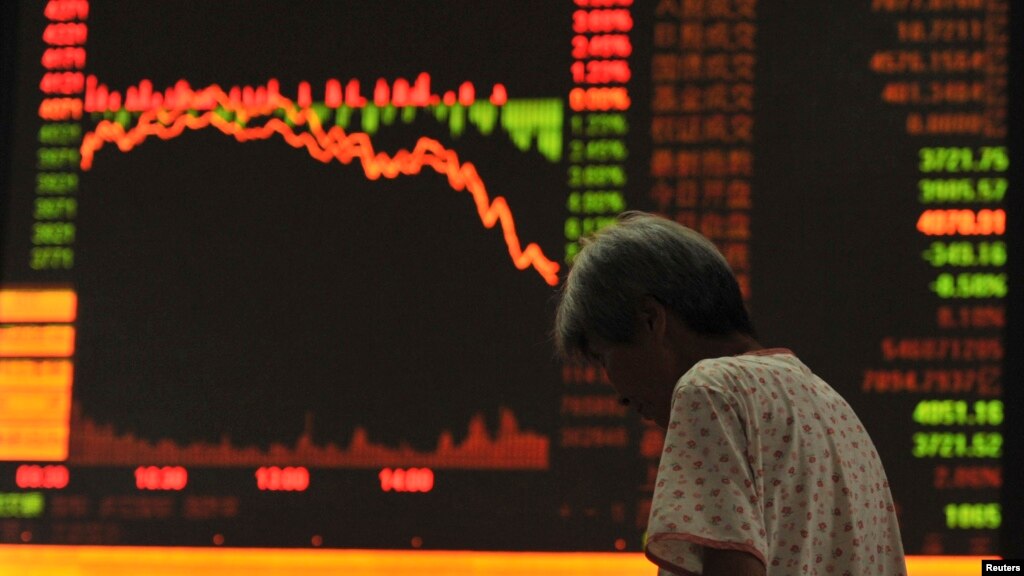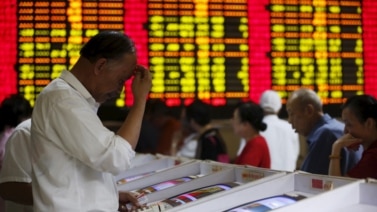
Stock price indexes in China had their sharpest one-day drop in eight years on Monday. Stock indexes also decreased around the world but to a lesser extent.
The Shanghai Composite index lost 8.5 percent. Another index of the largest listed companies in Shanghai and Shenzhen, in southern China, fell by 8.6 percent.
Experts say Monday’s price drop came from investors trying to secure profits following recent Chinese government efforts to support prices. In early July, China’s central bank made billions of dollars available to brokerages. The money was for the purchase of shares in companies to prevent their prices from falling too far. At that time, more than 1,400 companies requested that trading in their stocks be stopped to avoid further losses. That number is now smaller.
Other experts say investors reacted to reports that the International Monetary Fund wanted China to reduce its market intervention. Also, Chinese industrial companies reported earnings that were worse than expected and pork prices rose.
Raymond Yeung is a China economist at the Australia and New Zealand Banking Group. He says the main reason for the sharp drop is that Chinese stock markets are not done de-leveraging. De-leveraging means to reduce the amount of money borrowed to pay for investments.
“Because of the high leverage exposure of the Chinese markets, anything that triggers a decline in such a short time will see some negative spiral effects in such highly leveraged markets,” Yeung says.
Many investors borrowed money to buy stocks as China’s mainland stock markets rose by about 150 percent over the past year. Borrowing in this way is known as margin lending. But as markets have fallen, many investors could struggle to pay back the loans.
Raymond Yeung says he expects Chinese stock regulators to continue restricting such practices.
China has taken a number of measures to try to make sure the markets do not fall. These include requiring anyone with five percent of shares in a company to hold them for six months.
Lu Suiqi is an associate professor of economics at Peking University. He says regulators will not be able to keep the markets from falling, and they should not try to do so. Mr. Lu says Chinese stocks remain too costly.
“The government’s rescue measures could curb the slides in a short term, but are powerless in reversing the long-term trend,” he says.
I’m Jim Tedder.
Joyce Huang reported this story for VOA. Additional material came from Reuters and other news services. Mario Ritter wrote it for VOA Learning English. Caty Weaver was the editor.
Words in This Story
listed – adj. to be among the companies that are traded on a stock exchange
de-leverage – v. (financial term) to reduce the amount of debt owed
margin lending – n. lending for investment purposes; lending part of the money owed in order to make a stock transaction
regulators – n. government officials who have power to make and enforce rules
curb – v. to limit; to reduce or discourage
trend – n. the general direction in which something is going

